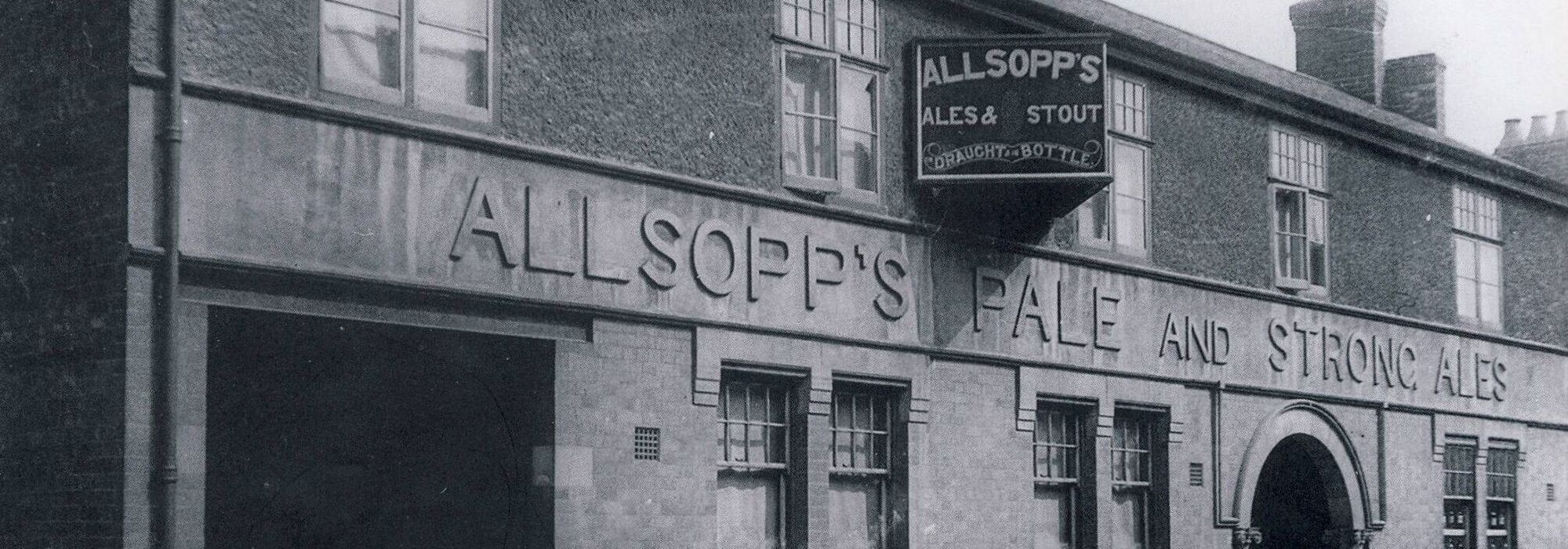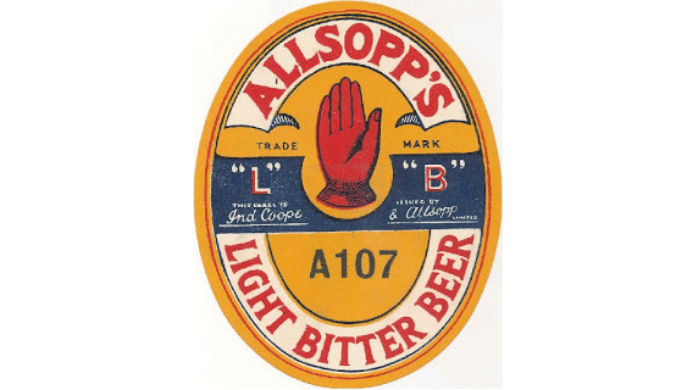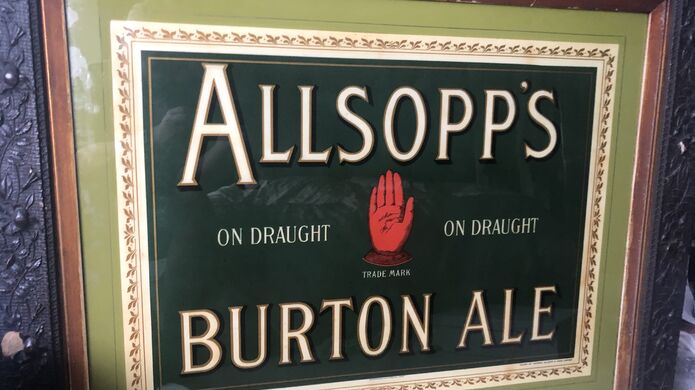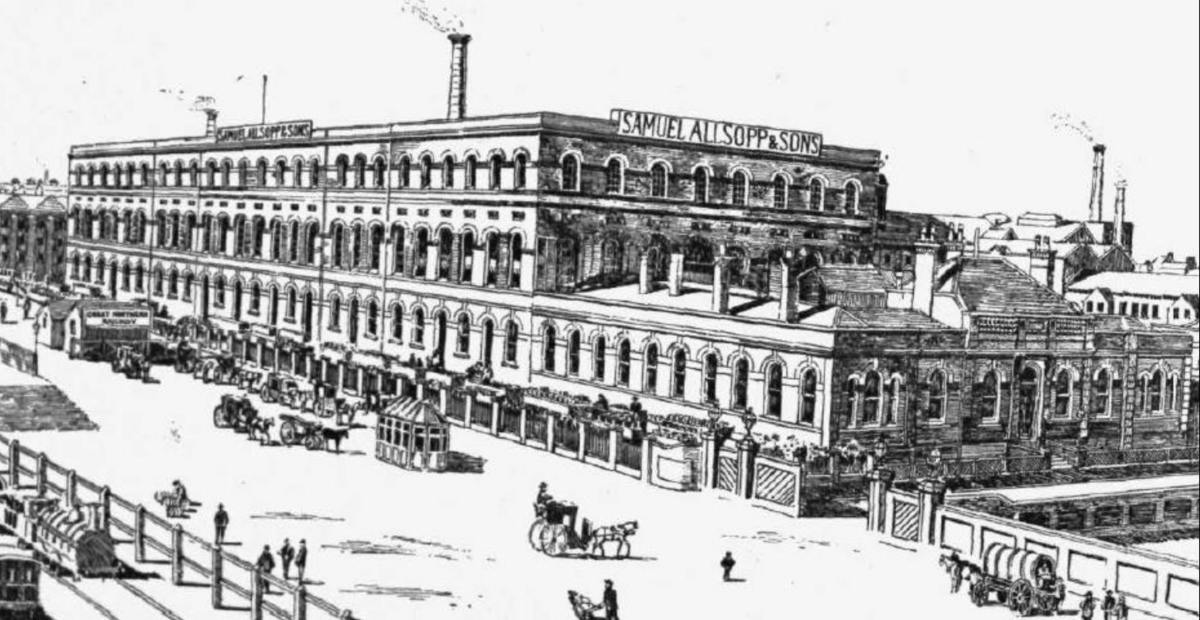
Burton and Its Bitter Beer (1853)
“Mr. Allsopp, though a man of high courage, and with a spirit as stanch as ever warmed the breast of a true English gentleman, felt, nevertheless, somewhat daunted by the sudden obstacles that had risen in his path. While in this frame of mind he went to London early in the year 1822, intent, as we have before mentioned, on the advancement of his trade in the metropolitan districts, and with the object of introducing the new ale which he was then contemplating, first in the northern districts, and afterwards generally throughout England.
It happened at this time, that dining with an East Indian Director, Mr. Marjoribanks, in the course of conversation he happened to make some remark on the late occurrences in Russia, the neglect of his remonstrances by the Government, and the gloomy prospects of his house from the loss of their European trade.
“But why not, Allsopp,” observed Mr. Marjoribanks, “leave the cold climates, and try the warmer regions of the earth? Why do you not make an attempt on the Indian market?”
“I never heard of it.”
“There are 5,000 hogsheads of English beer sent to Madras and Bengal every year; and, what is more to your purpose, it is a trade that can never be lost; for the climate is too hot for brewing, unless at a distance so great that the carriage must eat up all the profits; and no tariff can ever affect you. We are all now dependent upon Hodgson, who has given offense to most of our merchants in India. But your Burton ale, so strong and sweet, will not suit our market.”
Here Mr. Marjoribanks rang the bell and directed his butler to bring in a bottle of Hodgson’s ale, that had been to India and back. The butler poured out a glass for Mr. Allsopp, who held it up to the light, and then, tasting it, exclaimed, “Is this the Indian Beer? I can brew it.”
“If you can, it will be a fortune to you,” was Mr. Marjoribank’s reply.

Allsopp's Light Bitter Beer Bottle Label 
Allsopp's Memorabilia Pub Sign
On Mr. Allsopp’s return to Burton-on-Trent, sitting one morning in his counting-house, one of the men came to tell him, “There’s a hamper for you, sir, just come down by the mail from London.” On opening this it was found to contain a dozen of ale; and with some joke about “coals to Newcastle” —” a present of ale to Samuel Allsopp at Burton!”—he took up a bottle on which was written “Hodgson’s Indian beer.” Little did Mr. Allsopp imagine that he had at that moment in his hand the key to a colossal business, and the foundation of the future great prosperity of Burton-upon-Trent.
Mr. Marjoribanks’ recommendation, and the evident importance which that gentleman attached to it, by forwarding this sample, forcibly impressed the mind of the great brewer; so, setting aside the sample of malt which he was then carefully examining, he directed “Job Goodhead” to be summoned.
Now this Job Goodhead was the maltster of the house; and though apprenticed to Mr. Benjamin Wilson, in 1803, is still alive, as if to laugh to scorn what some have endeavoured to make out—the fatal consequences of drinking much Burton ale. Job Goodhead, too, is as hearty a fellow as any in Messrs. Allsopp’s employ, where he still fills his old post; and as he delights to tell the story:—
“Job,” said Mr. Allsopp, holding oat to him a glass of the Indian beer, “can you dry your malt that colour?”
“Yes, sir,” answered Job, at the same time tasting the beer, and sputtering it out fast, for Job was of the old school, and preferred his ale strong and sweet. “But, sir,”—
“Never mind the taste, Job. Can you dry your malt to this colour ?—are you sure?”
“Quite sure, sir.”
“Then do so.” The great brewer and his hereditary maltster set to work at once; and the first specimen of the great pale ale and bitter beer trade of Burton, now extending to so many thousand hogsheads, was brewed in a teapot. “
In 1828 Samuel Allsopp died. After his death, his sons Charles and then Henry continued the Brewery under the name Samuel Allsopp and Sons in his honour.
The experiment was triumphant, and Allsopp’s started to export India Pale Ale with such success that in 1859 Allsopp’s built Britain’s largest Brewery at Burton. In 1864, the prestigious office block was added.

"The Biggest Brewery In Burton"
